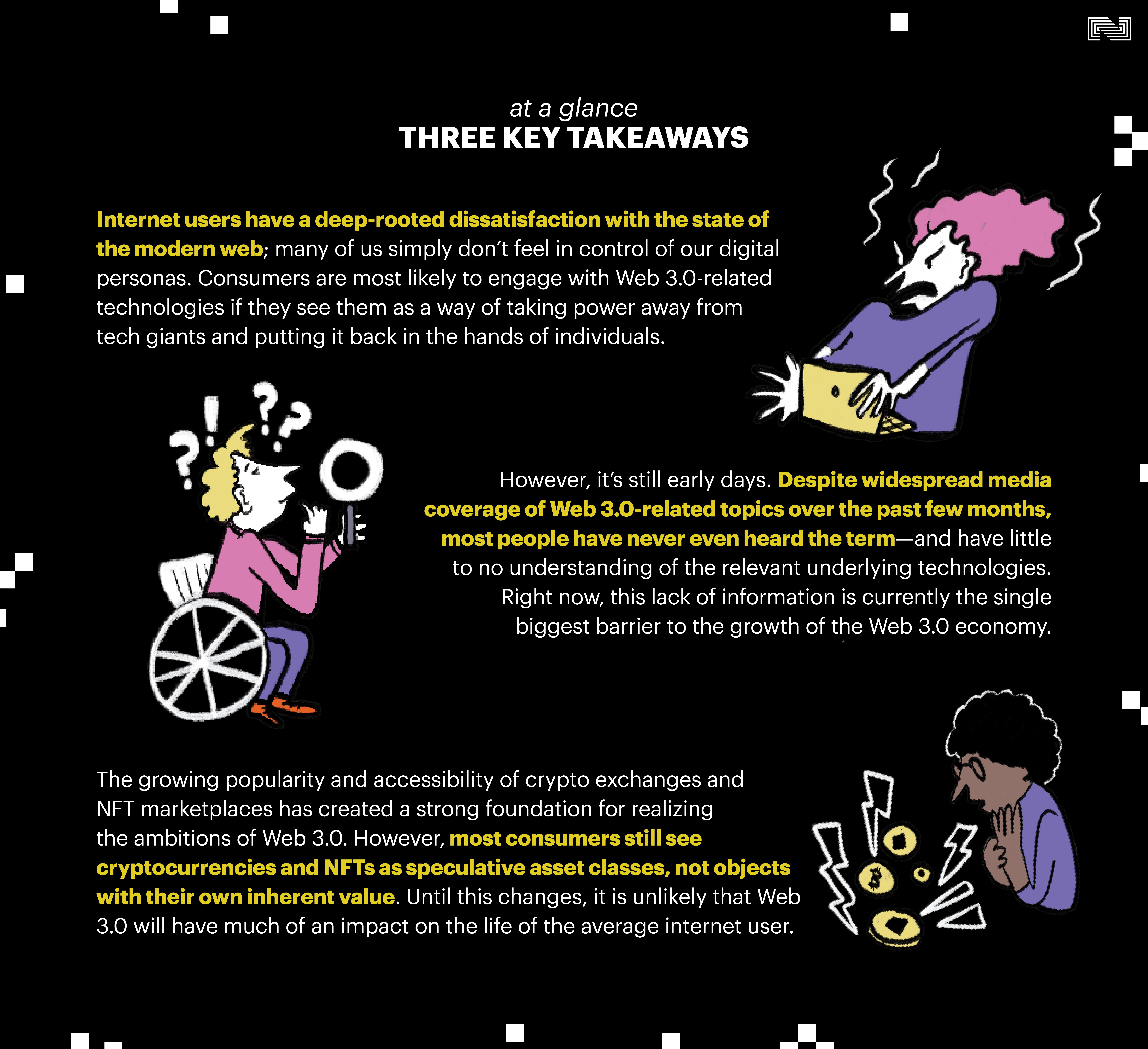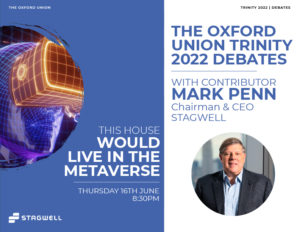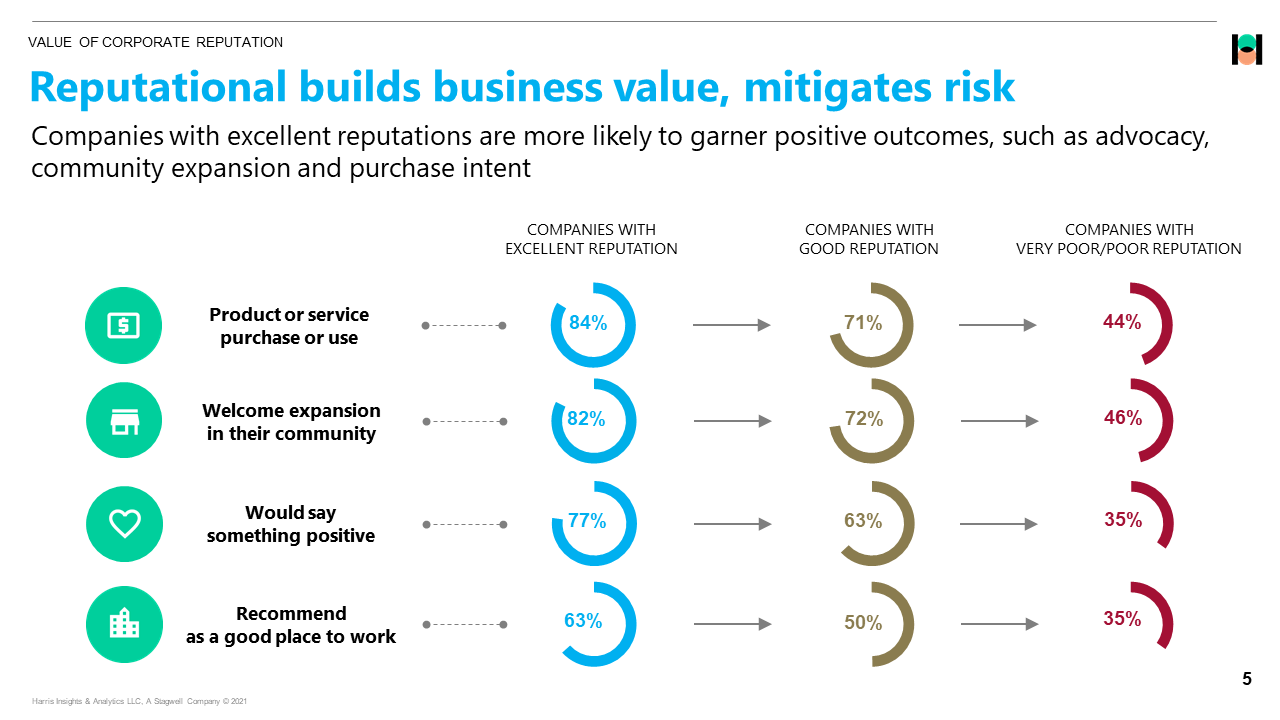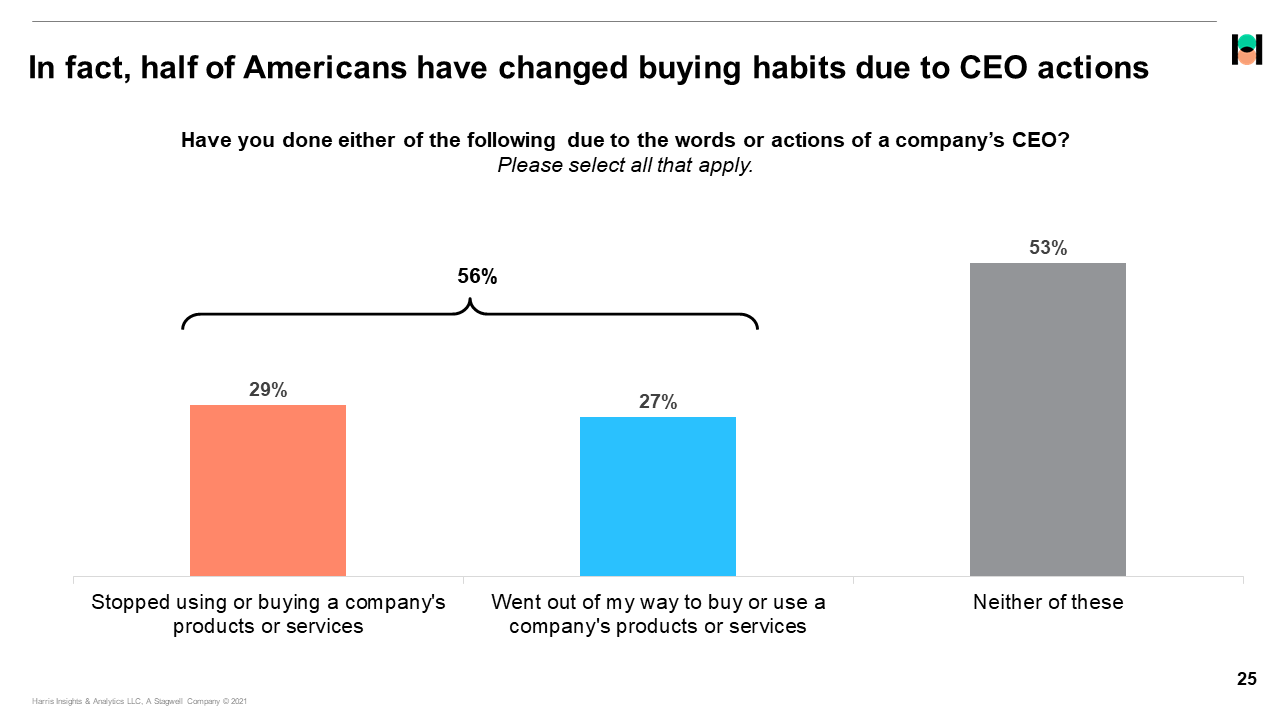By
Geoff Edwards,
Executive Creative Director, GALE
CONTACT
hello@stagwellglobal.com
SIGN UP FOR OUR INSIGHTS BLASTS

GALE’s Executive Creative Director Geoff Edwards was selected to chair the Branded Entertainment category at this year’s London International Awards. Below he outlines the 3 things to keep in mind when creating work for this category.
I feel fortunate to have been chosen to chair the Branded Entertainment category at this year’s London International Awards. However, there’s a challenge that comes with judging this evolving category. Branded Entertainment represents the most inspired creativity that our Industry has to offer, but let’s be honest, it’s confusing at times, and amorphous. I’ve judged this category in a prior life and created successful content throughout my career for brands like Adidas, Microsoft XBOX, and Spotify, and the same questions surface: “Is it entertainment or is it marketing? Is it product placement or is it product integration? What is it? What isn’t Branded Entertainment? And what exactly are we judging?”
Here are 3 things to keep in mind when creating work for this category:
1) All marketing needs to be performance marketing.
No exceptions. This category is exciting, creatively rich, and tends to be entertainment focused, but the work still needs to communicate a clear and simple message about the brand and expand its audiences. Here’s an interesting stat: In 2021, worldwide digital advertising spending amounted to $455.3 billion. Statista estimates this figure will increase over the next couple years, reaching $646 billion by 2024. Considering this projection, social media marketing, email, mobile, and other forms of performance marketing will enter the fold more and more. This by no means implies that you shouldn’t shoot for the stars creatively and ambitiously, but at the end of the day the work we make, even Branded Entertainment, ‘should work.’ Trust me, your clients will love you for this! If you disagree, I hear Netflix is hiring.
2) Branded Entertainment needs its own marketing plan.
What your content strategy is, where your content lives, and who your content is created for is foundational to creating effective Branded Entertainment. In the past it’s been a clever or beautiful film dropped on YouTube. Or an influencer featured in a short series featuring a product or service. But today this simply isn’t enough. The most impactful work sits at the center of a brand narrative. And all communications must row in the same direction. Creating a piece of content with no support is no longer acceptable for clients. Branded Entertainment is a chapter in a bigger story. And that story needs to be supported by a multichannel marketing strategy.
3) Telling a better story starts with a better strategy.
Branded Entertainment exists to engage consumers without leaving them feeling sold to. Storytelling is and will always be the way we make that human connection. However, those are table stakes today. Brands are competing with entertainment and social content of all types, and this was never made more clear than during the pandemic. Our stories can’t be interruptive anymore, they need to be as exciting and engaging as the content that surrounds it. Or even be part of the entertainment itself. Last year’s LIA submissions were good but could have benefitted from equally creative media. I know we’re not judging media and strategy, but a great idea is inextricably linked to the way we see and experience it. Hard to separate the two. Telling a better story also requires developing a better strategy. Creating better content where the brand is integral to the storyline. Partnering with better ‘makers’ to create your film or your experience. This year, I hope to challenge the perception that Branded Entertainment cannot be also brand building. Not just a fast growing trend.
My most celebrated work has been Branded Entertainment.
I’ve worked at companies where creative was everything.
I’ve worked at companies where data was everything.
I believe the intersection of both roads is ultimately where brand success is.
Related
Articles
In the News, Press Releases
Jul 09, 2025
STAGWELL LAUNCHES STAGWELL MEDIA PLATFORM (SMP), A CENTRALIZED TEAM OF GLOBAL MEDIA, TECHNOLOGY AND DATA INVESTMENT EXPERTS

Artificial Intelligence, In the News, Marketing Frontiers, Press Releases, Stagwell Marketing Cloud, Tech
Jun 12, 2025
PRophet, a Stagwell (STGW) Company, Completes Integration of UNICEPTA, Launches Unified Brand and Enhanced Media Intelligence Offering

In the News, Marketing Frontiers, Press Releases, Stagwell Marketing Cloud, Tech
Jun 11, 2025
The Marketing Cloud Launches Cutting-Edge Platform to Simplify Marketing Workflows

Newsletter
Sign Up

It is my pleasure to bring you the findings our latest Harvard CAPS / Harris poll just before the long weekend. The survey was fielded among 1,308 registered voters earlier this week between June 28-29, 2022. (Link to the full poll here).
The country’s mood continues to worsen – “wrong track” metrics about the direction of the country (70% say we are on the wrong track) and the direction of the economy (71% wrong track) are the worst they have ever been in our poll, surpassing even the onset of the pandemic. Today 64% of voters indicate that their financial situation is getting worse, a figure almost double from the initial stage of the pandemic.
Biden’s re-election chances sink lower – his approval in June is at 38%, tied for the lowest it has ever been. Only 40% of voters today think Biden is mentally fit to serve as president (down from 48% one month ago), and 64% say he’s showing he is too old. Only a third of the Democratic base would support him in a presidential primary (though he leads the pack, this is still a very low figure of support for an incumbent).
Importantly, voters are asking for change — 71% of all voters do not want Biden to run for reelection and the plurality say it’s because he is a bad president. Similarly , 61% do not want Trump to run in 2024 either and they are largely divided as to why, with a third each saying Trump is erratic, he will divide America, and he’s responsible for Jan 6th. This observed aversion to the former and current president means a major opening for an independent presidential ticket – 60% would consider voting for a moderate independent candidate for president if Biden and Trump both ran.
Voters remain divided on whether Trump incited or encouraged the Jan 6th riots, but are leaning slightly towards saying ‘Yes’. Note that this is a highly partisan issue with deep partisan breaks. Further, while voters believe the commission hearings are harming Trump politically, a small majority remain concerned that the commission’s work is biased, that it is having the effect of dividing Americans further, and that it will be used to silence voices on the right.
Finally on SCOTUS’s decision to repeal Roe vs. Wade – 55% oppose the decision; 69% believe SCOTUS’ decision has created turmoil; however, a plurality believe abortion standards should be set by state legislatures (44%) compared to a Congressional vote (31%) or SCOTUS itself (25%). And despite the decision, 63% of voters view the court as legitimate and 59% believe it is wrong for democrats to call the court illegitimate.
Lastly, it looks like abortion may not have a major impact on midterm elections – voters are just as likely to vote Dem as they are GOP given the split nature of this issue.
These and more are covered in our monthly canvas of what America’s thinking on the hot issues of the day. As always feel free to reach out with questions and follow my podcast about the poll at www.MARKPENNPOLLS.com (full episode) or any of the following channels: @iHeartRadio, @ApplePodcasts, @Spotify, @Stitcher,@Google, @SoundCloud, @RadioPublic, @Tunein, @Castbox_fm, @Overcast, @Castro.
-Mark
Related
Articles
Events, In the News, Investments & Financials, Press Releases
Aug 07, 2025
Stagwell (STGW) Announces August Investor Conference Schedule


In the News
Jul 31, 2025
STAGWELL INC. (NASDAQ: STGW) REPORTS RESULTS FOR THE THREE AND SIX MONTHS ENDED JUNE 30, 2025

Newsletter
Sign Up
Welcome back to Hitting the Mark, my monthly analysis of developments at the intersection of business, marketing, and politics for modern C-Suite leaders. This month, I look at the metaverse in terms of how it can transform brands – and how it may transform society.
Before we vault to the future, I want to acknowledge the turmoil that the overturning of Roe v. Wade has caused. As predicted in last month’s column, this summer is “chock-full of potentially divisive issues for corporations.” At Stagwell, we moved immediately to provide a travel benefit that ensures all employees maintain access to reproductive healthcare. I worked for Planned Parenthood of New York as their consultant for 10 years in the late ’70s and ’80s when this legal battle was new – and feel strongly about protecting choice.
As you consider how to navigate this issue, our Harvard CAPS/Harris data shows that while most people would have supported continuing Roe, a majority would also have supported rollbacks to the viability standard as proposed by Justice Roberts, and large majorities oppose late-term abortions. The July edition of the Harvard CAPS/Harris Poll – released today – continues to track American sentiment post-Roe. If you’d like to connect for advice on how to navigate this landscape, please reach out.
Turning to the topic of this month’s newsletter, the metaverse. Today’s business leaders are faced with two major discussion tracks around the metaverse: how will it transform my brand? And how will it transform society?
The Metaverse and Brands
On the first: I had the pleasure earlier this June of giving a fierce argument on behalf of the future of the metaverse at the prestigious Oxford Union, alongside technologists, academics, journalists, and brand leaders seeking to determine whether “this house should live in the metaverse.” Spoiler alert: we lost the debate. But I got some interesting insights from the audience – mostly younger, Gen Z consumers. The reasons why we lost prove there’s much for marketers to dig in on as they drum up consumer excitement about the metaverse, map its contours, and start innovating their technologies, products, and services.
Younger consumers are cynical almost to the point of anger about Big Tech and FAANG dominating the metaverse. I heard impassioned speeches from the opposition about the various ailments Web2 platforms have unleashed on the world, from broken freedom of speech to harassment, to the consolidation of power, and more. And that tracks with recent research from National Research Group showing consumers think the Internet has become more commercialized (80%), addictive (79%), and has encouraged people to treat each other more cruelly (69%).
- My take: Big tech beware: if you look at the arc of innovation, tech empires have limited lifespans. Myspace fell to Facebook. YouTube is losing ground to TikTok. Facebook’s social empire based on the sale of user data is shrinking. In the metaverse, I believe Big Tech will certainly be part of the equation, but the hardware, servers, and aspects of the tools needed to build dominant visions of the metaverse and Web3 may push many new worlds and businesses into the market

These Oxfordians challenge the idea you can live a fulfilling life in the metaverse, even as they see the potential for it to scale and democratize access to global travel, quality education, and shared experiences. Blame it on the propensity of the young to see apocalypses lurking behind every corner or on the lingering psycho-social effects of the pandemic, but younger consumers are worried metaverse tech will open Pandora’s Box into a social dystopia where consumers live more in virtual reality than real life.
- My Take: What they ignore – and where brands have an opening to bridge this gap – is the sheer volume of time we already spend in digital and virtual realities. A reliance on digital existence is already a norm and could intensify, given more engaging and immersive metaverse worlds. This may actually lead to a more positive state of mental health in comparison to current screen time practices.
Oxford listeners are just as confused about the terminology as brand marketers (but that doesn’t matter). Metaverse? Web3? Blockchain? Younger consumers are just as baffled by the buzzwords as senior brand marketers. But they’re not invested in the halo excitement around this fresh new tech – and unimpressed with many of the early metaverse experiments which don’t model the true potential of Web3.
- My Take: The most helpful definition brands can work with is, the metaverse is not a single application, or program, or virtual reality – it’s, as Wired points out, a multiverse of metaverses. Like streaming services, there are many, constantly competing with other groups, constantly breaking into new content niches. While it may benefit technologists and investors to think of the metaverse in the context of cryptocurrency of NFTs, there is no necessary connection between the multiverse of metaverse and those terms. They are only part of the tech-bro world, along with unrelated ideologies. Your best bet as a brand playing in the metaverse over the next year? Think about it in the context of the experiences it can create, more so than the technology that needs to be built to reach its most perfect vision
The Metaverse and Society
Beyond pure brand applications, the metaverse promises to transform society for the better. There are four immediate Metaverse applications that illustrate the power of this technology – and why we’re bullish on ensuring it comes to life. The below is an excerpt from my speech at the Oxford Union.
Metaverse One: Avatar interviewing can massively increase women’s’ success in the job market.
Should we wait decades for attitudes to change or hope that implicit bias training will someday produce effective and lasting results? No. You are likely aware of the practice of blind auditions to select members of symphony orchestras.
In the past, candidates would perform before a selection committee on stage, where the gender of candidates was obvious. To combat likely gender bias, most American symphonies now conduct auditions with the performer behind a screen — only their music matters. The Guardian reported that the use of screens increases the odds that a woman will advance from preliminary rounds to finals by 50%! The percentage of women in American symphony orchestras has risen from 5% to nearly 30% in the period after screens were adopted.
Imagine if job interviews were gender-neutral. Interviewers would meet with identical avatars distinguished only by their answers to interview questions and the questions that prospective employers ask. The metaverse could create a level playing field in hiring unimaginable in today’s world. Millions of women are waiting for the metaverse to advance their careers.
Metaverse Two: The opportunity afforded by debate can reach thousands more. The Yale University high school tournament ordinarily brings 300 teams to its most heavily attended division of debate. In the Fall of 2020, 900 teams participated – three times as many when costs are reduced to a cell connection and a 4G cellphone, accessible to anyone for a small fraction of the cost of physical tournament attendance. Remarkably, by eliminating the expense of air travel, hotel stays, and local transportation, these efforts have significantly improved access for thousands of students. Are these events as moving, as satisfying, as physical attendance? Perhaps not, depending on how much you loathe the hassle, expense, and friction of travel, a virtual tournament has many advantages.
But, with a multiverse of 3D speakers, who can go to rounds, wander a virtual campus, gather at virtual cafes to discuss the resolution and complain about teammates and judges, the experience can be made both more satisfying and really, really cheap. By making debate more accessible to students everywhere the many lifelong advantages of this activity can reach hundreds of thousands of students who are denied access by the accidents of geography and economic status.
Metaverse Three: The metaverse can produce an explosion of educational opportunity. Zoom was a very taxing first step in distance learning. Let’s be clear: hours on a Zoom lecture can be mind-crippling. This explains the failure of Massive Open Online Classrooms – MOOCS – that enroll many and graduate almost no one because they are primarily cameras in lecture halls.
But the Metaverse is not your father’s Zoom technology. Within a metaverse environment with classmates around a table, with course materials available at a click to all within a classroom, everything can change. No one disputes that an immersive, high-resolution environment is greatly more engaging than Zoom. If a professor wants you to study the Great Pyramids at Giza, you can go there in photoreal environments. You can tour the tombs of Cheops and Tutankhamun in real time. You can examine exhibits at the Louvre without pushing through crowds of tourists. Lab experiments can be performed before your very eyes. It is true that a picture is worth a thousand words – but a lived experience is worth a thousand pictures.
Metaverse Four: Medical miracles. For example, the BBC tells the story of one British woman who recounted her joyous experience of visiting new worlds and environments after being left severely disabled by a traumatic brain injury. These interventions—priced only at the rapidly decreasing cost of a VR headset—have the potential to bring people immense benefits, ranging from stress relief, anxiety treatment, and amelioration of chronic pain.
Furthermore, such technology will dramatically improve surgical training, saving lives and limbs. One study finds that surgical trainees using VR learned a procedure nearly seven times faster than their traditionally trained counterparts; the technology helps to always keep surgeons’ focus on their patients rather than on external displays. Additionally, consulting doctors in virtual reality for minor ailments can help reduce strain on the already-overwhelmed medical industry.
We’ll be inventing and reinventing the metaverse for years, if not decades, to come. To make the metaverse perform for consumers (not just for those of us geeking out about the technology) brands are going to need to keep their ears to the ground with polling, surveys, and data analysis to track where consumers see the metaverse adding value – and where they’re just confused about why brands are serving virtual hot dogs.
Until next time,
Mark Penn
Related
Articles
Events, In the News, Investments & Financials, Press Releases
Aug 07, 2025
Stagwell (STGW) Announces August Investor Conference Schedule


In the News
Jul 31, 2025
STAGWELL INC. (NASDAQ: STGW) REPORTS RESULTS FOR THE THREE AND SIX MONTHS ENDED JUNE 30, 2025

Newsletter
Sign Up
CONTACT
hello@stagwellglobal.com
SIGN UP FOR OUR INSIGHTS BLASTS
![Email Banners [Recovered]-01](https://www.stagwellglobal.com/wp-content/uploads/2022/06/Email-Banners-Recovered-01.png)
Bonjour from the south of France! Stagwell is your behind-the-scenes pass to the best of Cannes Lions. Each day, we’re sharing three quick takes on the biggest conversations at the Palais and bringing you backstage to the Speakers’ Lounge with leading marketers. Want more? Follow along on LinkedIn.
- WAIT, YOU MEAN IT’S ACTUALLY AN ECONOMY? Day three sessions proved that the creator economy is actually an economy in development, not just a buzzword. The influencers are growing up. Getting serious about brand partnerships. Leveraging creator funds and programs to maximize reach. And even becoming virtual. On the Terrace, Influence 3.0 assured us a new wave of influencers have entered the chat. .
- THE MANY FACES OF STORYTELLING The Many Faces of Storytelling. There’s no playbook for telling the right story — but we know what needs to go right before you do. Regina Hall and Amazon’s Ukonwa Ojo showed us what happens when women lead. You have to blend great creative with fast-paced media (thank you, Ryan Reynolds). Look to the future — and, look for ways to continually deliver value.
- PUT THE CREATORS IN THE DRIVER’S SEAT. We’re hearing brands get more comfortable with putting creators in the driver’s seat of campaign activations. Creators should be natural extensions of the marketing team. Will we see a category at Cannes in the future for visionary influencers turned creative directors?
Beyond the Stage
Stagwell is the official sponsor of the Cannes Lions Speakers’ Lounge, bringing you exclusive interviews with some of the most interesting people at Cannes — and the stories beyond the main stage.
First out of the Content Studio: Our Chairman and CEO Mark Penn in conversation with Axios Media Reporter Sara Fischer. They discuss the earliest trends coming out of Cannes 2022, including an evolved consumer path to purchase coming out of the pandemic, the Disrupted vs. Disruptors, and the bargain of first-party data.
Related
Articles
In the News, Press Releases
Jul 09, 2025
STAGWELL LAUNCHES STAGWELL MEDIA PLATFORM (SMP), A CENTRALIZED TEAM OF GLOBAL MEDIA, TECHNOLOGY AND DATA INVESTMENT EXPERTS

Artificial Intelligence, In the News, Marketing Frontiers, Press Releases, Stagwell Marketing Cloud, Tech
Jun 12, 2025
PRophet, a Stagwell (STGW) Company, Completes Integration of UNICEPTA, Launches Unified Brand and Enhanced Media Intelligence Offering

In the News, Marketing Frontiers, Press Releases, Stagwell Marketing Cloud, Tech
Jun 11, 2025
The Marketing Cloud Launches Cutting-Edge Platform to Simplify Marketing Workflows

Newsletter
Sign Up
CONTACT
hello@stagwellglobal.com
SIGN UP FOR OUR INSIGHTS BLASTS
![Email Banners [Recovered]-01](https://www.stagwellglobal.com/wp-content/uploads/2022/06/Email-Banners-Recovered-01.png)
Bonjour from the south of France! Stagwell is your behind-the-scenes pass to the best of Cannes Lions. Each day, we’ll send you three quick takes on the biggest conversations at the Palais and bring you backstage to the Speakers’ Lounge with leading marketers.
The topic du jour? Gen Z consumers and how brands can leverage culture to connect with them. Want more? Follow along on LinkedIn.
- WHEN DID MILLENNIALS BECOME UNCOOL? PAGES ARE SO 2010. Gen Z – now with the purchasing power – was the most talked-about consumer segment on Day 4. All about more purposeful brands and consumerism, this “activist generation,” as Malala Yousafzai calls them, is key to future growth. [Go Deeper: OK Zoomer – The Journey of Gen Z]
- HOW DO YOU IDENTIFY? Beyond racial and gender categories, brands are finding value in consumer groups organized around multiple categories, from age to regional affiliation, eating habits, and more. We’re hearing brands push agencies to build insights and creativity from the ground up to perform better together.” [Go Deeper: CPB and Buchanan’s Celebrate the Spirit of the 200%”]
- MEET YOUR CUSTOMERS IN FORTNITE. An overlooked segment for many years, gamers are “the new pop culture icons.” Channeling gaming culture to scale reach and understanding that it cuts across standard demographics were key learnings for newcomers in The Forum. [Go Deeper: How can brands positively connect with video game enthusiasts?]
Beyond the Stage
Stagwell is the official sponsor of the Cannes Lions Speakers’ Lounge, bringing you exclusive interviews with some of the most interesting people at Cannes – and the stories beyond the main stage.
Hear from Nola Weinstein, Global Head of Culture & Experiential, Twitter, on “moving at the speed of the feed,” how Twitter approaches experiential marketing, Web3, career advice, and more.
Related
Articles
In the News, Press Releases
Jul 09, 2025
STAGWELL LAUNCHES STAGWELL MEDIA PLATFORM (SMP), A CENTRALIZED TEAM OF GLOBAL MEDIA, TECHNOLOGY AND DATA INVESTMENT EXPERTS

Artificial Intelligence, In the News, Marketing Frontiers, Press Releases, Stagwell Marketing Cloud, Tech
Jun 12, 2025
PRophet, a Stagwell (STGW) Company, Completes Integration of UNICEPTA, Launches Unified Brand and Enhanced Media Intelligence Offering

In the News, Marketing Frontiers, Press Releases, Stagwell Marketing Cloud, Tech
Jun 11, 2025
The Marketing Cloud Launches Cutting-Edge Platform to Simplify Marketing Workflows

Newsletter
Sign Up
CONTACT
hello@stagwellglobal.com
SIGN UP FOR OUR INSIGHTS BLASTS
![Email Banners [Recovered]-01](https://www.stagwellglobal.com/wp-content/uploads/2022/06/Email-Banners-Recovered-01.png)
Bonjour from the south of France! Stagwell is your behind-the-scenes pass to the best of Cannes Lions. Each day, we’re sharing three quick takes on the biggest conversations at the festival and bringing you backstage to the Speakers’ Lounge with leading marketers.
All across the Palais, from the Discovery stage to Snap & Gucci’s much-anticipated presentation, the buzz was all about giving e-commerce new creative digs. Want more? Follow along on LinkedIn.
- PRODUCT PAGES ARE SO 2010. Product pages are so 2010. WARC spotlighted changing frontiers of e-commerce across its sessions today. The big takeaway? It’s creative + media + e-commerce as the new formula for marketing. Food for thought: How can we take e-commerce, a creatively challenging space, and fuse content, branded entertainment, influencer integrations, and more throughout? [Go Deeper: Building a Best-in-Class Marketplace for Thrive Market]
- E-COMMERCE HAS TO GET EXPERIENTIAL It’s clear that extended reality is nearer than the metaverse, powering strong, connected experiences for consumers, adding dimensionality to product pages, and allowing consumers to encounter not just the product but the experience it promises. Snap & Gucci wowed with their look into how AR is changing “experiential digital commerce.” [Go Deeper: Marketing Frontiers – Augmented Reality]
- HOW TO SELL AND NOT BE A SELLER. Pure sales messages are poor drivers of commerce. Social commerce – bringing the content-driven channel of influencer closer to the point of sale – along with branded entertainment is a plus for reaching ad-avoidant consumers, our very own Jae Goodman (two-time Entertainment Lions juror) reminded marketers today. [Go Deeper: Celebrity Drives Brand Awareness. Nano-Influencers Drive Commerce.]
Beyond the Stage
Stagwell is the exclusive partner of the Speakers’ Lounge, where every festival speaker goes before and after their slot. Check out our exclusive interviews with brand leaders and go beyond what they said on the Main Stage.
We’ll be posting new, daily content on Youtube. Join us!
Related
Articles
In the News, Press Releases
Jul 09, 2025
STAGWELL LAUNCHES STAGWELL MEDIA PLATFORM (SMP), A CENTRALIZED TEAM OF GLOBAL MEDIA, TECHNOLOGY AND DATA INVESTMENT EXPERTS

Artificial Intelligence, In the News, Marketing Frontiers, Press Releases, Stagwell Marketing Cloud, Tech
Jun 12, 2025
PRophet, a Stagwell (STGW) Company, Completes Integration of UNICEPTA, Launches Unified Brand and Enhanced Media Intelligence Offering

In the News, Marketing Frontiers, Press Releases, Stagwell Marketing Cloud, Tech
Jun 11, 2025
The Marketing Cloud Launches Cutting-Edge Platform to Simplify Marketing Workflows

Newsletter
Sign Up
Originally released on

NEW YORK and OXFORD, England – June 7, 2022 – Stagwell (Nasdaq: STGW), the challenger network built to transform marketing, today announced Chairman and CEO Mark Penn will join The Oxford Union, the world’s most prestigious debating society, to debate the promises and pitfalls of the metaverse. The debate, “This House Would Live in the Metaverse,” will explore the future of Web3 and the metaverse in the context of data and privacy, brand marketing, and ultimately, how the metaverse will transform the way people, countries, and communities connect. Stagwell invites press to attend the debate at 8:30 p.m. GMT+1 on Thursday, June 16; details to RSVP are below.
Penn will argue on behalf of the metaverse as a platform that can transform how brands relate – and market – to consumers. Stagwell is excited about the potential of Web3 and currently counsels multinational brands on whether and how to enter the metaverse, including areas of investment to consider within augmented reality (AR), non-fungible tokens (NFTs), the creator economy, and other areas of opportunity.
“We’ve only just scratched the surface of AR, VR, NFTs and other emerging technologies in the metaverse, and I’m excited to join this expert group as we debate the possibilities,” said Stagwell Chairman and CEO Mark Penn. “The metaverse provides an entirely new canvas for brands to build creative, digital experiences that connect consumers around the world.”
Current confirmed debaters include:
Proposition Side
- Stagwell Chairman and CEO Mark Penn
- AGT International Chairman & Owner Mati Kochavi
Opposition Side
- University of Birmingham Professor Sylvie Delacroix
- Bloomberg and Techworld journalist Margi Murphy
- TechCrunch Editor-at-Large Mike Butcher
Journalists interested in attending the debate and/or connecting with Penn for an interview, please contact Beth Sidhu at beth.sidhu@stagwellglobal.com.
About Stagwell Inc.
Stagwell is the challenger network built to transform marketing. We deliver scaled creative performance for the world’s most ambitious brands, connecting culture-moving creativity with leading-edge technology to harmonize the art and science of marketing. Led by entrepreneurs, our 10,000+ specialists in 34+ countries are unified under a single purpose: to drive effectiveness and improve business results for their clients. Join us at www.stagwellglobal.com.
About The Oxford Union
Founded in 1823, the Oxford Union is a forward-thinking institution at Oxford University that strives to strengthen democratic values through free and fair discussion. Having invited illustrious guests from the Dalai Lama to Presidents Carter, Nixon, and Reagan, the Oxford Union allows its members to debate and question the modern thinkers of our time. Diversity, not only of opinion or politics but of all types, remains the lifeblood of the Union today, and continues to be so for as long as we are visited by the greatest and most knowledgeable speakers in the world.
Contact: Beth Sidhu
beth.sidhu@stagwellglobal.com
+1. 202.423.4414
Related
Articles
In the News, Investments & Financials, Press Releases, Talent & Awards
Jul 08, 2025
Stagwell (STGW) Advances Executive Team with Four Key Appointments

In the News, Press Releases, Thought Leadership
Jun 10, 2025
Stagwell (STGW) Chairman and CEO Mark Penn to Discuss the Irreplaceable Power of Human Creativity on the Main Stage of Cannes Lions

Events, In the News, Press Releases, Talent & Awards
Jun 05, 2025
Code and Theory Named ANA B2B Agency of the Year After Transforming the World’s Leading Brands

Newsletter
Sign Up
Originally released on

Challenger Marketing Network to Run Cannes Lions Speakers Lounge Content Studio
NEW YORK and CANNES, France, May 31, 2022 — Stagwell (NASDAQ: STGW), the challenger network built to transform marketing, is celebrating the in-person return of the Cannes Lions International Festival of Creativity after two years of virtual programming. To celebrate Cannes Lions 2022, Stagwell is proud to serve as official sponsor of the Cannes Lions Speakers’ Lounge.
As the title sponsor of the Speakers’ Lounge, Stagwell will welcome and host guests participating in live conversations on the Cannes Lions stages. Stagwell will also have a content studio within the Speakers’ Lounge, producing a range of recorded interviews with key talent offering their most compelling insights, distributed across various online channels.
“We’re excited to partner with the Festival to bring both the art and science of creativity to life in the Speakers’ Lounge. Our goal is to capture insights from the brightest minds and share them widely with our industry,” said Stagwell Chairman and CEO Mark Penn. “What better place to create new, meaningful connections than at our industry’s premier celebration of creative excellence.”
With a number of additional private events and over 75 Stagwell network employees in attendance, this is Stagwell’s largest commitment at Cannes Lions to date. Network agencies who are confirmed to attend include:
- 72andSunny
- Allison + Partners
- Anomaly
- Assembly
- Code and Theory
- Colle McVoy
- Doner
- Forsman & Bodenfors
- GALE
- Ink
- Instrument
- MMI Agency
- Observatory
- Veritas
- Wolfgang
If you are a brand executive or journalist interested in participating in Speakers’ Lounge interviews or Stagwell’s private networking events, please email cannescomms@stagwellglobal.com for further information.
Stagwell is the challenger network built to transform marketing. We deliver scaled creative performance for the world’s most ambitious brands, connecting culture-moving creativity with leading-edge technology to harmonize the art and science of marketing. Led by entrepreneurs, our 10,000+ specialists in 34+ countries are unified under a single purpose: to drive effectiveness and improve business results for their clients. Join us at www.stagwellglobal.com.
Contact:
Beth Sidhu
beth.sidhu@stagwellglobal.com
+1. 202.423.4414
# # #
Related
Articles
In the News, Investments & Financials, Press Releases, Talent & Awards
Jul 08, 2025
Stagwell (STGW) Advances Executive Team with Four Key Appointments

In the News, Press Releases, Thought Leadership
Jun 10, 2025
Stagwell (STGW) Chairman and CEO Mark Penn to Discuss the Irreplaceable Power of Human Creativity on the Main Stage of Cannes Lions

Events, In the News, Press Releases, Talent & Awards
Jun 05, 2025
Code and Theory Named ANA B2B Agency of the Year After Transforming the World’s Leading Brands

Newsletter
Sign Up
By
Barbara Laidlaw
Partner, Global Risk, Reputation + Public Affairs
Allison+Partners
CONTACT
hello@stagwellglobal.com
SIGN UP FOR OUR INSIGHTS BLASTS

When an organization begins to expand globally, it often faces a new set of challenges that could mean adjusting current strategies that have yielded success on the domestic front. Economic, regulatory and operational factors are just some of the many considerations nascent global businesses must address to succeed on the international stage.
A less tangible but imperative concern is the organization’s reputation and how it will scale along with other elements of the business. Reputation takes years to build and only minutes to tarnish, making it one of the most precarious factors at play during expansion. Therefore, before pursuing an ambitious global footprint, businesses should consider how reputation management coexists with the following:
- Cultural & regional differences: Global expansion will require the ability to adjust some aspects of how a business operates to meet the standard of wherever the expansion takes place. Consider how different factors, such as language barriers, lifestyle, cultural history, education and politics, impact business objectives from employees’ and customers’ perspectives. By developing a strong understanding of these components and how they may factor into the business’s reputation, an organization will be positioned well to avoid pitfalls and preempt potential damage from related issues.
- Regulatory & political issues: Establishing an intimate understanding of how relevant political issues may affect the business is critical to avoid becoming trapped in them. Tapping into the expertise of third-party consultants and internal personnel within the region are just two ways a company can ensure it operates with the correct understanding of the political landscape. Strict regulatory compliance is another area in which businesses should invest resources to insulate themselves from running afoul of regulations or laws they may not have considered otherwise.
- Social impact & ESG: As organizations expand globally, they will inevitably increase their global footprint and their environmental and societal one. Depending on the nature of the business, there could be additional social considerations to account for, such as human rights or political turmoil. Today, enterprises prioritize their societal impact more than ever. To continue to thrive, global organizations must navigate the complexities that come with the recent rise in investor and consumer activism.
- Core values: As is true with any period of growth within an organization, maintaining core values is one of the most prominent challenges a business must contend with. This is only magnified when the company begins to expand globally. Upholding core values is essential to brand reputation and should be a priority item when considering further expansion. Emphasizing the importance of quality onboarding procedures, internal initiatives and other team-focused programs are ways a business can maintain its values as it grows.
- Communications infrastructure: Ultimately, scaling communications capacity and capabilities to match company growth will provide a business with the fundamental infrastructure it needs to preempt potentially damaging issues and effectively react to them when they occur. Through regular assessments of an organization’s communications capabilities, the business can proactively address weak spots and build on areas of strength, resulting in a more robust global communications program that underpins every core function of the business itself.
Navigating the reputational complexities of a global business is a challenge. While organizations should always remain prepared to tackle known sources of risk to their reputation, there will always be unpredictable events or incidents that present additional risks. Environmental disasters, wars, political turmoil, supply chain challenges and regulatory issues are just some of the many hurdles businesses need to contend with and overcome regularly.
Ultimately, the most effective way to mitigate the potential fallout from known and unknown risks is to continually ensure the organization is operationally resilient and maintains a robust communications infrastructure that it can leverage before, during and after an adverse event.
Barbara Laidlaw brings 25 years of experience developing and running programs that help companies prepare, protect and defend their brand reputations through global and national events, recalls, litigation, data breaches, regulatory issues and labor disputes.
Related
Articles
In the News, Press Releases
Jul 09, 2025
STAGWELL LAUNCHES STAGWELL MEDIA PLATFORM (SMP), A CENTRALIZED TEAM OF GLOBAL MEDIA, TECHNOLOGY AND DATA INVESTMENT EXPERTS

Artificial Intelligence, In the News, Marketing Frontiers, Press Releases, Stagwell Marketing Cloud, Tech
Jun 12, 2025
PRophet, a Stagwell (STGW) Company, Completes Integration of UNICEPTA, Launches Unified Brand and Enhanced Media Intelligence Offering

In the News, Marketing Frontiers, Press Releases, Stagwell Marketing Cloud, Tech
Jun 11, 2025
The Marketing Cloud Launches Cutting-Edge Platform to Simplify Marketing Workflows

Newsletter
Sign Up
By
Ray Day
Stagwell Vice-Chair
CONTACT
hello@stagwellglobal.com
SIGN UP FOR OUR INSIGHTS BLASTS

“It takes 20 years to build a reputation and five minutes to ruin it. If you think about that, you’ll do things differently.” – Warren Buffet
Today, corporate reputation means more than mastery of the marketplace. Reputation is a measure of what all stakeholders – including consumers, employees, shareholders, and more – think about a company.
Contrary to “brand” – which measures a company’s products & services, typically among specific consumer segments, a reputation is earned not created.
Reputation is comprised of your company’s performance + its behavior in the marketplace, reflected through its internal and external marketing communications. When reputation is curated, it has the potential to build business value and can help mitigate risks. Companies with excellent reputations are more likely to garner positive outcomes, such as advocacy, community expansion and purchase intent.

Today’s corporations and CEOs have greater permission from the public to address complex social issues – within bounds. Reputation today is evolving today to reflect more than just a product or service set, but a businesses’ commitment to serve society.
In recent years, geopolitical, economic, and social developments have created a society in transition and turmoil. Consumers have more expectations of corporations in this environment – not least because of declining trust and expectations in institutional actors such as governments and municipalities. As measured by Stagwell’s 2021 Reputation Quotient, brands across nearly every business sector experienced a reputational boost during the height of the pandemic as consumers looked to the private sector for solutions where public officials were failing to create them:
CEOs, and in a limited capacity other star of the C-Suite such as CMOs, are rapidly gaining reputational capital within the market and with consumers. They influence sales, perceived product/service quality, and signal the strength of an organization’s culture. As CEO reputation extends outward, when to exert influence in society becomes more calculated and more important. Americans say CEOs most affect reputation, ethics, and financial success for today’s organizations. CEOs also have a growing public awareness and influence on consumer sales; half of Americans report changing buying habits due to the actions of a CEO.

More traditional C-suite players like Jamie Dimon at Goldman Sachs leverage influence in quieter, more sustained ways – Dimon’s annual letter is a bellwether for the future of global financial markets, with wide-ranging through leadership implications for businesses within and beyond the financial services category.
With that reputational capital comes the burden of leadership: the public believes CEOs should stand on issues where they have credibility, not where they don’t have a voice or authority. Ultimately, core values should be the navigator of social issues. Alienation is a risk in a highly polarized society, but so too is the risk of stakeholders who perceive CEOs as indifferent or in conflict with the company’s principles. This is especially true among younger and Black Americans. While standing down is expedient, a generational and cultural divide is growing that will make decisions more difficult and polarizing.
Corporate and CEO reputation is changing quickly. Stagwell is a leader in global reputation tracking and management; learn more about the Reputation Quotient, an annual collaboration between Stagwell, Axios, and The Harris Poll tracking the most visible companies in America. Register to receive our 2022 research when it releases in May.
Related
Articles
In the News, Press Releases
Jul 09, 2025
STAGWELL LAUNCHES STAGWELL MEDIA PLATFORM (SMP), A CENTRALIZED TEAM OF GLOBAL MEDIA, TECHNOLOGY AND DATA INVESTMENT EXPERTS

Artificial Intelligence, In the News, Marketing Frontiers, Press Releases, Stagwell Marketing Cloud, Tech
Jun 12, 2025
PRophet, a Stagwell (STGW) Company, Completes Integration of UNICEPTA, Launches Unified Brand and Enhanced Media Intelligence Offering

In the News, Marketing Frontiers, Press Releases, Stagwell Marketing Cloud, Tech
Jun 11, 2025
The Marketing Cloud Launches Cutting-Edge Platform to Simplify Marketing Workflows


